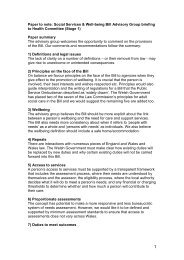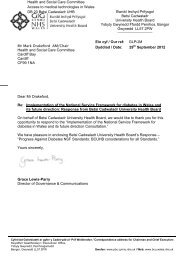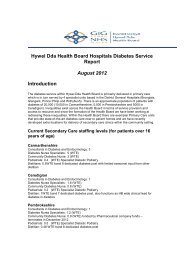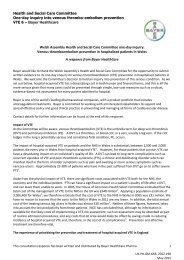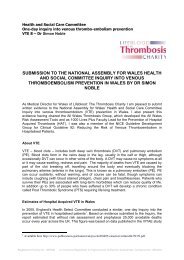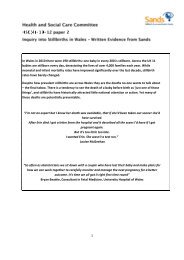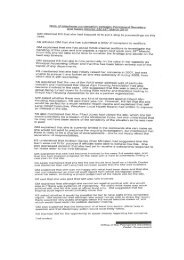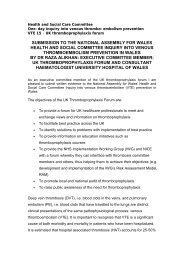Consultation Response - Media 12 - Cardiff University PDF 2 MB
Consultation Response - Media 12 - Cardiff University PDF 2 MB
Consultation Response - Media 12 - Cardiff University PDF 2 MB
You also want an ePaper? Increase the reach of your titles
YUMPU automatically turns print PDFs into web optimized ePapers that Google loves.
The item was developed with interviews from BBC’s Panorama, most notably<br />
the Director of Public Prosecutions (DPP), Keir Starmer. However, the remit of<br />
the DPP has jurisdiction only in England and Wales, which was not stated<br />
before, during or after the interview. On Radio 4’s Six O’Clock News the<br />
relevant item began:<br />
The Justice Secretary, Jack Straw, has announced there is to be a review into the<br />
way police are using cautions and fixed penalty notices. The move comes amid rising<br />
concern from the Director of Public Prosecutions and others that increasing numbers<br />
of offenders are being dealt with through out-of-court penalties, rather than going<br />
before magistrates. (Radio 4 Six O’Clock News, 9 November 2009)<br />
To gain further authority on the issue, a BBC journalist was interviewed in a<br />
second news item on the story describing the cautions system as if it was a<br />
UK-wide justice issue. Finally, the Justice Secretary was interviewed at some<br />
length (four minutes and 16 seconds) about the review but at no stage in the<br />
interview was it mentioned that the remit covered England and Wales-only<br />
jurisdiction. It is clear, in this instance, that time was not a constraint on<br />
clarifying the geographical relevance of the story.<br />
Implied context<br />
The only hint of the story’s applicability to England and Wales on BBC<br />
broadcast news was found on Radio 4’s Six O’Clock News. It quoted figures of<br />
cautions being handed out – over 39,000 for actual bodily harm in the past<br />
year – before adding: “The results were from 39 police forces in England and<br />
Wales”. However, at no stage was it clearly stated that the review was<br />
relevant only to England and Wales. While there was some implied context<br />
that the story related to England and Wales only, we found that, in other<br />
stories, these nations were often sourced together even when the story<br />
related to the UK as a whole. This may be partly explained by the way data<br />
are measured at the Office of National Statistics, but it does mean that an<br />
audience member could not assume that the use of a statistic is indicative of<br />
the story’s relevance.<br />
The only BBC news items to state that Scotland does not have a cautions<br />
system was on BBC online. A prominent box that contextualised the review<br />
was presented:<br />
CAUTIONS: THE FIGURES<br />
• Results from 39 of 41 police forces in England and Wales surveyed<br />
• 38,952 cautions issued for actual bodily harm (ABH)<br />
• 739 cautions issued for grievous bodily harm (GBH)<br />
• Half of all criminal cases dealt with using cautions<br />
• Cautions are not used in Scotland<br />
34





